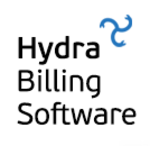Description

Cheddar

Trexle
Comprehensive Overview: Cheddar vs Trexle
Cheddar and Trexle are both platforms that serve particular niches within the realm of business operations and e-commerce, but they serve different primary functions and target slightly diverse markets.
Cheddar
a) Primary Functions and Target Markets
Cheddar is a billing and subscription management platform designed to handle complex usage-based billing. It is particularly well-suited for businesses that require a flexible billing system that can accommodate various pricing strategies, such as metered billing, tiered pricing, and dynamic billing models. Cheddar automates subscription billing, invoicing, and payment processing, offering integrations with various payment gateways.
Target Markets: Cheddar is ideal for SaaS companies, IoT businesses, and any enterprise that relies heavily on subscription models or usage-based billing. These could range from small startups to medium-sized enterprises looking to automate and streamline their billing processes.
b) Market Share and User Base
Cheddar caters to a niche market with its specialized focus on usage-based billing. Although not as universally recognized as some larger competitors in the broader billing solutions market, it holds a solid user base among tech-focused startups and mid-sized enterprises that need its specific functionality.
c) Key Differentiating Factors
- Usage-Based Billing: Cheddar is particularly strong in supporting complex billing scenarios that involve metered or usage-based pricing.
- Flexibility: Offers high customization for billing needs without requiring extensive coding knowledge.
- Integration: Provides seamless integration with various payment gateways, which allows businesses to work with their preferred payment processing vendors.
Trexle
a) Primary Functions and Target Markets
Trexle is a payment gateway integration platform that connects e-commerce systems with numerous payment gateways, providing a unified integration solution. It simplifies the process of integrating various payment gateways into online stores, enhancing the payment processing landscape for merchants who operate e-commerce sites.
Target Markets: Trexle targets e-commerce businesses, both small and large, as well as developers seeking a streamlined method for integrating multiple payment gateways. This includes online retailers and businesses looking to expand their payment processing capabilities easily.
b) Market Share and User Base
Trexle has positioned itself as a versatile and developer-friendly integration tool, gaining traction among e-commerce platforms looking for flexible payment solutions. While it is not the dominant player in the payment processing integration market, it serves a growing number of businesses that seek simplified multi-gateway integrations.
c) Key Differentiating Factors
- Gateway Variety: Supports integration with a wide range of payment gateways, providing businesses with extensive choices.
- Ease of Integration: Focuses on simplifying the technical challenges of payment gateway integration through its unified API.
- Developer-Friendly: Offers robust documentation and support for developers, facilitating smoother and quicker integration processes.
Comparison and Conclusion
While both Cheddar and Trexle are platforms within the financial operations domain, their focus differs significantly. Cheddar is more involved with billing management, particularly subscription and usage-based, whereas Trexle excels in providing payment gateway integration solutions.
Cheddar would typically be chosen by businesses that need detailed and flexible billing systems, whereas Trexle would be favored by companies looking to enhance their e-commerce payment processing capabilities with minimal integration hassle. These ecosystems, although overlapping in their broader payment facilitation niche, serve complementary rather than directly competing roles, often catering to different operational demands within businesses.
Contact Info

Year founded :
2016
+1 917-267-2494
Not Available
United States
http://www.linkedin.com/company/cheddar-inc-

Year founded :
2016
Not Available
Not Available
United States
Not Available
Feature Similarity Breakdown: Cheddar, Trexle
Cheddar and Trexle are both subscription billing and payment management platforms that cater to businesses looking to streamline their recurring billing processes. Let's break down their feature similarities and differences:
a) Core Features in Common
-
Recurring Billing: Both platforms offer capabilities to manage recurring billing cycles, automate billing processes, and handle various subscription plans.
-
Payment Integration: Cheddar and Trexle provide integrations with multiple payment gateways to facilitate seamless transaction processing.
-
Customer Management: They offer features to manage customer accounts, track user activity, and maintain detailed customer records.
-
Analytics and Reporting: Both platforms include tools for generating reports and analytics, helping businesses to track performance and understand their subscription metrics better.
-
API Access: Cheddar and Trexle have APIs available that allow developers to integrate their systems and customize the billing process according to specific business needs.
b) User Interface Comparison
-
Cheddar: Cheddar typically offers a clean, user-friendly interface that prioritizes ease of use for small to medium-sized businesses. Its dashboard is often intuitive, focusing on straightforward navigation through billing and subscription management tasks.
-
Trexle: Trexle, being a payment integration platform, may have a more technical or developer-oriented interface. It's designed to facilitate easy integration with a wide range of payment gateways, which might make it appear more suited for users with some technical expertise as compared to Cheddar.
c) Unique Features
-
Cheddar:
- Time-based Usage Billing: Cheddar allows businesses to bill customers based on time-based usage, making it ideal for companies that charge for time-sensitive resources.
- Real-time Pricing: It offers a unique feature for real-time dynamic pricing, which can be advantageous for businesses needing to adjust prices frequently based on demand or other factors.
-
Trexle:
- Gateways Integration Hub: Trexle is known for its extensive gateway integration capabilities, supporting a wide range of payment processors. This makes it particularly attractive to businesses that intend to operate in multiple regions or require specific gateway support.
- Developer-Friendly Environment: With a focus on developers, Trexle provides robust integration tools and a flexible API, which can be a significant advantage for tech-savvy businesses needing a tailored payment integration solution.
In summary, while both platforms share common billing and payment management features, their unique offerings and user interfaces cater to slightly different business needs and technical expertise levels. Cheddar leans towards simplicity and ease-of-use for smaller companies, whereas Trexle offers extensive gateway support and robust developer tools.
Features

User-Friendly Analytics
User-friendly Interface
Robust Reporting Tools
Efficient Payment Processing
Comprehensive Support
Simple Subscription Management
Efficient Customer Support
Secure and Reliable Payment Handling

Payment Gateway Integration
Customer Support
Security Features
Developer Resources
Merchant Account Management
Best Fit Use Cases: Cheddar, Trexle
Cheddar
a) Best Fit Use Cases for Cheddar:
-
Subscription-Based Businesses: Cheddar is particularly well-suited for companies that operate on a subscription model. This includes SaaS businesses, membership sites, and any service that bills customers on a recurring basis. Cheddar provides robust tools for managing subscription billing and complex pricing plans.
-
Startups and SMEs: Smaller companies and startups that need a flexible and user-friendly billing solution can benefit from Cheddar. It offers easy integration and is scalable, making it a suitable choice for businesses that are in growth phases.
-
Complex Usage-Based Billing: Businesses with sophisticated usage-based billing models that require metered billing capabilities can leverage Cheddar’s strengths. It allows for precise billing calculations based on customer usage.
-
Technology and Software Companies: As many technology businesses operate on recurring revenue models, Cheddar’s targeted features are a natural fit.
d) Industry Vertical and Company Size:
-
Industry Vertical: Cheddar is adaptable to various industries, primarily focusing on technology, SaaS, and membership-based services due to its comprehensive billing features.
-
Company Size: It caters primarily to small to medium-sized enterprises but can scale with growth. Its flexibility makes it an attractive option for startups as well.
Trexle
b) Preferred Use Cases for Trexle:
-
E-commerce Platforms: Trexle is a payment gateway aggregator and is therefore apt for e-commerce businesses that require integration with multiple payment gateways. This is ideal for online retailers looking to offer diverse payment methods to their customers.
-
Cross-Border Transactions: Businesses that deal with international transactions and need to accept payments in various currencies can benefit from Trexle. Its support for multiple payment gateways worldwide facilitates easy cross-border transactions.
-
Businesses Requiring Quick Integration: If a company needs to set up its payment processing quickly and with minimal technical hassle, Trexle’s emphasis on easy integration can be highly advantageous.
d) Industry Vertical and Company Size:
-
Industry Vertical: Trexle can be employed in various sectors, including retail, services, and any business that has an e-commerce component. It is especially beneficial for businesses that need international payment solutions.
-
Company Size: Trexle is scalable and can be suitable for small to large enterprises. Its ability to handle multiple gateways makes it versatile for growing businesses.
Overall, Cheddar and Trexle serve different needs and can be selected based on specific business requirements related to billing complexity, integration needs, and the scale of operations.
Pricing

Pricing Not Available

Pricing Not Available
Metrics History
Metrics History
Comparing teamSize across companies
Conclusion & Final Verdict: Cheddar vs Trexle
To provide a comprehensive conclusion and final verdict for Cheddar and Trexle, it's important to weigh several key considerations, including pricing, features, integration capabilities, user experience, and scalability. Here is an analysis followed by specific recommendations:
a) Best Overall Value
Cheddar:
- Pros: Cheddar is a robust subscription billing management tool designed for SaaS companies. It offers extensive analytics, automated billing, revenue recognition, and detailed customer metrics, making it ideal for businesses wanting comprehensive financial control and insight.
- Cons: Cheddar may be more complex to set up and require a steeper learning curve. It might also be considered costly for startups or small businesses without ample financial resources.
Trexle:
- Pros: Trexle is known for its integration simplicity, offering multiple payment gateways and minimal setup. Its straightforward interface makes it user-friendly for businesses that prefer easy integration with various platforms.
- Cons: The feature set might be less comprehensive than Cheddar’s, and it may not support as advanced analytics or billing customizations. It could be less suitable for businesses needing deeply integrated financial insights.
Conclusion: Cheddar offers the best overall value for medium to large SaaS businesses needing comprehensive billing and analytics features. Trexle might be more valuable for smaller businesses focused primarily on payment integration and ease of use.
b) Pros and Cons of Choosing Each Product
Cheddar:
- Pros:
- Advanced analytics and reporting.
- Automated billing processes.
- Strong revenue management features.
- Robust customer management metrics.
- Cons:
- Higher complexity in setup and management.
- Potentially higher costs.
- May require dedicated resources for management.
Trexle:
-
Pros:
- Easy integration with multiple payment gateways.
- User-friendly with a short learning curve.
- Cost-effective for smaller operations.
-
Cons:
- Limited advanced billing features.
- Lacks comprehensive financial analytics.
- May not support large-scale, complex billing needs.
c) Specific Recommendations
For medium to large SaaS businesses, Cheddar would typically be the recommended option due to its in-depth reporting and revenue management capabilities, which are crucial for scaling and financial optimization.
For small businesses or startups, Trexle could be more appropriate due to its ease of use, quick integration processes, and lower operational cost. If the business grows and innovative features become more necessary, they can always migrate to a more robust system like Cheddar later.
Ultimately, the decision should hinge upon the specific needs regarding billing complexity, budget constraints, and whether advanced analytics is a current priority.
Add to compare
Add similar companies



